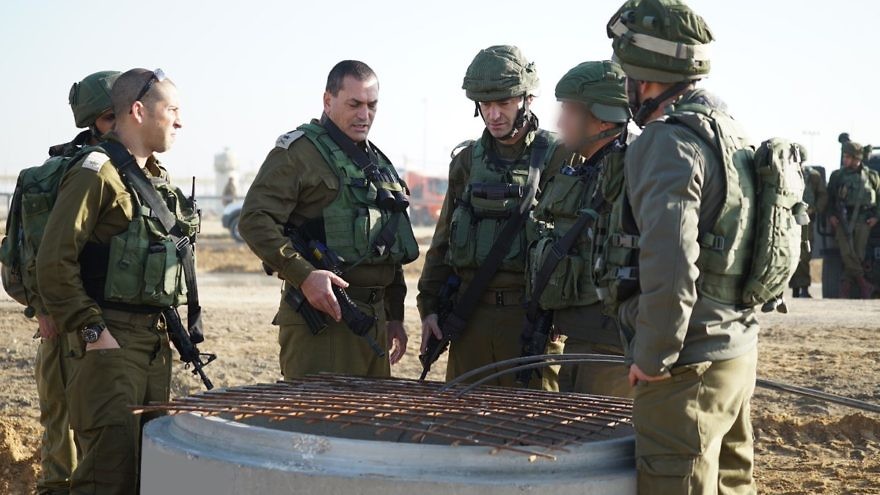Israel Defense Forces’ Ombudsman Maj. Gen. (res.) Yitzhak Brick urged the Knesset on Wednesday to name an investigative committee to probe what he called “serious problems with the IDF’s organizational culture.”
Speaking before a Knesset State Control Committee session devoted to the IDF’s war readiness, Brik said, “I know the army better than anyone in the IDF today thanks to the decades I have spent in my job. I don’t want a repeat of the catastrophe that was exposed in the [1973] Yom Kippur War.”
Brik was harshly critical about the ground forces’ war readiness, particularly when it comes to the reserves.
“The IDF has the most advanced equipment in the world. In presentations, everything is correct, but when you put the equipment in place in the field, [the forces] don’t know how to operate it, especially the reserves units. A respected major-general told me, ‘The new weapons aren’t well-integrated in the army.’ This is a waste of hundreds of millions of shekels,” said Brik.
Brik also said that the reserves forces, which is the main fighting force in a ground conflict, were the “biggest problem.”
“Reservists would be on a week-long maneuver and don’t maintain their weapons. They don’t clean them or take them apart. No other army in the world is run this way. They [reservists] dunk the weapons in [gun] oil—nothing more. How can a soldier who arrives on Monday and is back home on Thursday supposed to drill properly?” he asked.
Brik told the committee that he had visited 1,400 IDF units.
“Someone needs to investigate the serious problems I found. There is a process of the mediocre blocking out the good. The irresponsible cutbacks of thousands of career personnel combined with shortened mandatory service are a lethal combination,” he warned.
Brik laid out before the committee a series of examples of what he called the IDF’s “problematic organizational culture.”
He cited instances of battalion commanders leaving their commands to attend conferences and soldiers being allowed to take their smartphones into battle, even during “Operation Protective Edge” in the summer of 2014.
“Soldiers sit with their phones at their posts, even during war. Orders are given via phones. In ‘Operation Protective Edge,’ hundreds of smartphones were allowed in [Gaza]. In the next war, that could cost someone their life. There’s a total lack of control,” said Brik.
Brik was also critical of the upper echelons of the military.
“There is no mentoring … company commanders aren’t in the field. They don’t train their soldiers. Battalion commanders spend less than 40 percent of their time in the field. They’re in meetings all day.”
Another point he raised was that the army did not report in real time.
“There is a culture of a conspiracy of silence. Problems are ignored. Commanders report on a partial picture—partly because they don’t see the whole picture and partly because they are overworked,” he said.
‘No one has ever died from criticism’
Committee chairwoman MK Shelly Yachimovich (Zionist Union) said that she had come under pressure not to allow Brik to speak in an open-door session.
Yachimovich claimed that one of the reasons given why Wednesday’s meeting should be canceled was because the State Control Committee does not have the authority to discuss these issues. She said she was also told that the meeting would harm public morale and the IDF.
“There was the impression that Brik was the enemy, not Hezbollah. No one has ever died from criticism,” said Yachimovich.
Chief of Staff of the IDF Ground Forces Brig. Gen. Ori Gordin responded to Brik’s criticism, saying that “there are problems that need to be addressed, and I’m not ignoring that. Another 2 billion shekels [$553 million] have been invested in the ground forces, which is huge news. We still need more.”
Touching on Brik’s comments about smartphone use posing a risk to IDF soldiers and operations, said Godrin, “We don’t give orders via WhatsApp. The chief of staff has issued a directive on the matter, and everyone in the military follows orders. Everyone in the military also uses smartphones, but not every communication is an order.”
Brik’s remarks to the State Control Committee come some three weeks after he wrote to the members of the Knesset Foreign Affairs and Defense Committee, sharing his concern that the IDF was not properly maintaining its tanks and APCs.
Brik warned committee members not to get “bogged down” with the reports they received from senior IDF officials, stressing that “the soldiers I talked to raised serious problems.”
“I recommend and urge you to visit field [units], talk to career personnel and let them show you what is happening in combat units. Unfortunately, throughout my time as ombudsman and especially in the past three years, I have found that some IDF commanders don’t say what they really think,” Brik prodded the Knesset members who sit on the committee.


























